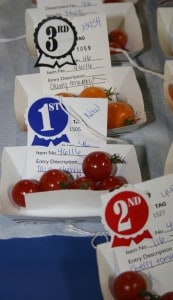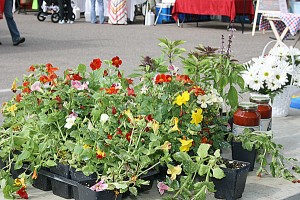
(Chelsea Update would like to thank Jennifer Fairfield, owner of The Garden Mill, for the information in this story. This is part 1. Part 2 will run tomorrow.)
I’ve heard people say they don’t have the space for a garden because they live in a condo or apartment. Or, they don’t have the time for a big garden. Or, that they just have other things they want to do with their time, but maybe would like to have a little something easy to grow.
Container gardening is the solution to all of those situations.
If all you have is a kitchen window, you can still grow fresh herbs for your recipes, and, it’s much less expensive than buying them at the grocery store.
Containers are portable. So, if the best place for a garden is your backyard, but you only have shade there, you can put a container where you have sun. 
And, if something in a container isn’t doing well where you have it, you can move it. Plus, you can transform an empty space with a particularly lovely pot (or pots) filled with beautiful flowers and foliage.
One of the first questions I get from people considering growing in containers goes something like “I can’t grow carrots (or tomatoes, or corn, or …) in a container, right?”
You can grow almost anything in the right container.
The trick is in knowing what to plant in what container.
For almost every type of plant you want to grow, there is a variety that can be grown in a container.
For veggies and herbs, here are some guidelines for how big a container you need for each type of plant. Always err on the side of bigger, as a container that is too small will stunt the growth of your plants and they will produce less.
Container Depth:
- 3-5 inches – chives, leaf lettuce, radishes, basil, coriander
- 6-7 inches – bush beans, garlic, onions, mint, thyme
- 8-9 inches – pole beans, carrots (some), chard, eggplant, head lettuce, peppers, spinach, parsley, rosemary
- 10-12 inches – beets, carrots (some), potatoes, summer squash (some), tomatoes (some), dill
- > 12 inches – broccoli, cabbage, cauliflower, corn, melons, squash, tomatoes













